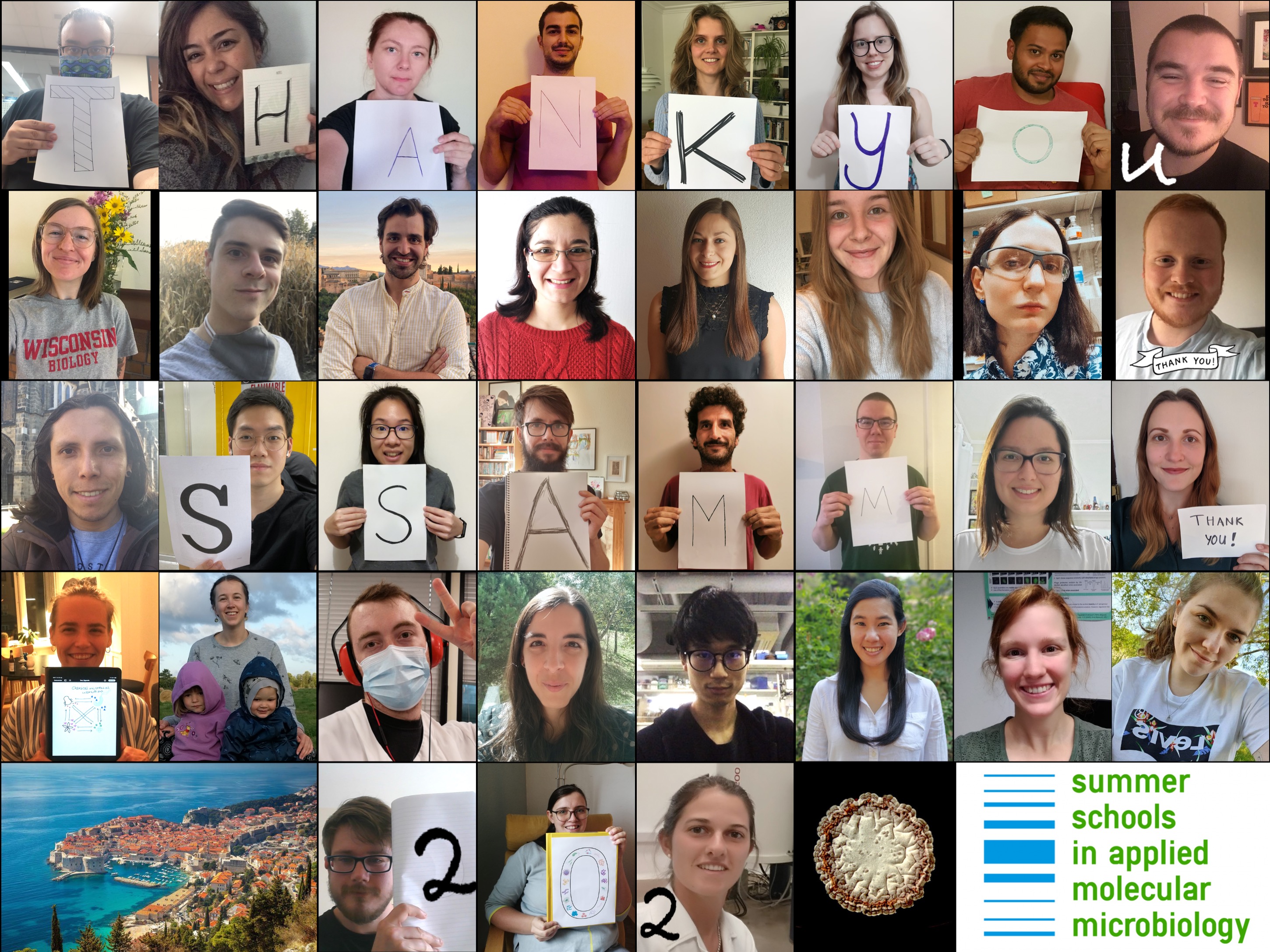2020 Applied Molecular Microbiology summer school report
This was the eighth John Innes/Rudjer Bošković Summer School in Applied Molecular Microbiology.
The first in this series of summer schools was held in 2007 at the Mediterranean Institute for Life Sciences (MedILS) in Split and the following six (in 2008, 2010, 2012, 2014, 2016 and 2018) took place at the Inter-University Centre (IUC) in Dubrovnik.
Because of the coronavirus pandemic, the 2020 course was held on-line using Zoom.
The co-directors of the course were Mervyn Bibb, Barrie Wilkinson and Andy Truman from the John Innes Centre, Greg Challis from the University of Warwick and Monash University, and Duška Vujaklija of the Rudjer Bošković Institute.
Course content, participants and faculty
These summer schools were founded to recognise the development of interest in microbial metabolites that has resulted from the explosive development of sequencing technology, bioinformatics and chemical analysis, coupled with the need for new natural products with application in medicine (for example, new antibiotics) and agriculture.
A particular aim is to make connections between the roles of small molecules in microbial communities, including cell-to-cell signalling and interactions between microbes and other inhabitants of their ecological niches, and the exploitation of the metabolites as drugs and other pharmaceuticals.
The following lectures were presented:
- The wonderful world of microbes and their specialised metabolites
- Isolation, cultivation and screening of microbial producers of specialised metabolites
- Natural product biosynthesis 1 (polyketides and terpenes)
- Natural product biosynthesis 2 (peptides and alkaloids)
- Introduction to computer workshop 1 – Genomics for genome mining
- Introduction to computer workshop 2 – Predictive polyketide synthase analysis
- Practical purification and characterisation of microbial natural products
- Chemical ecology of insect-microbe symbiosis
- Control of natural product biosynthesis
- Polyketide biosynthesis workshop
- Ecology and evolution of natural product biosynthetic gene clusters
- Industrial fermentation and strain improvement of producing microorganisms
- γ-butyrolactone signalling systems and post-translational modifications
- Phylogenetic approaches to natural product discovery
- Expansion of natural product chemical diversity: Lessons from antibiotic discovery
- Discussion of computer workshops
Of the 46 applicants originally selected travel to Dubrovnik, 36, based in 18 different countries, elected to take part in the online Summer School. Sessions were held on each Tuesday, Wednesday and Thursday throughout September.
The faculty consisted of Mervyn Bibb, Barrie Wilkinson and Andy Truman from the John Innes Centre UK, Duška Vujaklija from the Rudjer Bošković Institute Croatia, Greg Challis from the University of Warwick UK and Monash University Australia, Marie Elliot from McMaster University Canada, Alison Foster from the University of Kent UK, Paul Jensen from the Scripps Institution of Oceanography USA, Roberto Kolter from Harvard University USA, Flavia Marinelli from the University of Insubria Italy, Mônica T. Pupo from the University of Sao Paulo Brasil, Emzo de los Santos from the University of Warwick UK, Gerry Wright from McMaster University Canada, and María Mercedes Zambrano from Corporación Corpogen Colombia.
Computer workshops
Emzo de los Santos and Greg Challis provided two computer workshops on aspects of bioinformatics relevant to the discovery and characterisation of specialised metabolites.
The first workshop focused on accessing and analysing genome sequences, genome annotation, the use of antiSmash to identify natural product gene clusters and clusterTools to search for particular types of gene clusters.
The second workshop introduced bioinformatics tools that are freely available on the internet and that are commonly used for the analysis of specialised metabolite biosynthetic gene clusters using a gene cluster encoding a cryptic modular PKS assembly line in the model actinomycete Streptomyces coelicolor A3(2) as an example.
It taught how to identify putative catalytic domains within the PKS and how to decide whether they are likely to be functional. The substrate specificity of the acyltransferase domains within the PKS were predicted, as well as the stereochemical control imparted by the ketoreductase domains.
This culminated in a predicted structure for the fully-assembled polyketide chain attached to the final module of the synthase and a hypothesis for the mechanism of chain release from the PKS.
Challenge Projects
This year we introduced Challenge Projects, which were run by Roberto Kolter and María Mercedes Zambrano. The aim was for small groups of students (4-5) to develop clearly defined plans to solve a specific problem that addressed an unmet need or that filled in a gap in knowledge in any area involving microbial specialised metabolites.
Each group of students worked with guidance from two faculty mentors to develop these plans which were then presented to the whole group towards the end of the Summer School.
Each group met online weekly three times before their final presentations, which were assessed by faculty members.
The Challenge Projects were well received by the students and each member of the winning team received a copy of both “Streptomyces in Nature and Medicine – The Antibiotic Makers” by David Hopwood’ and “Life at the Edge of Sight” by Scott Chimileski and Roberto Kolter.
Two minute flash talks
In lieu of the usual Poster Sessions, each student gave a two minute – one slide flash talk to describe their current research followed by questions and answers.
Online Summer School attendees 2020

